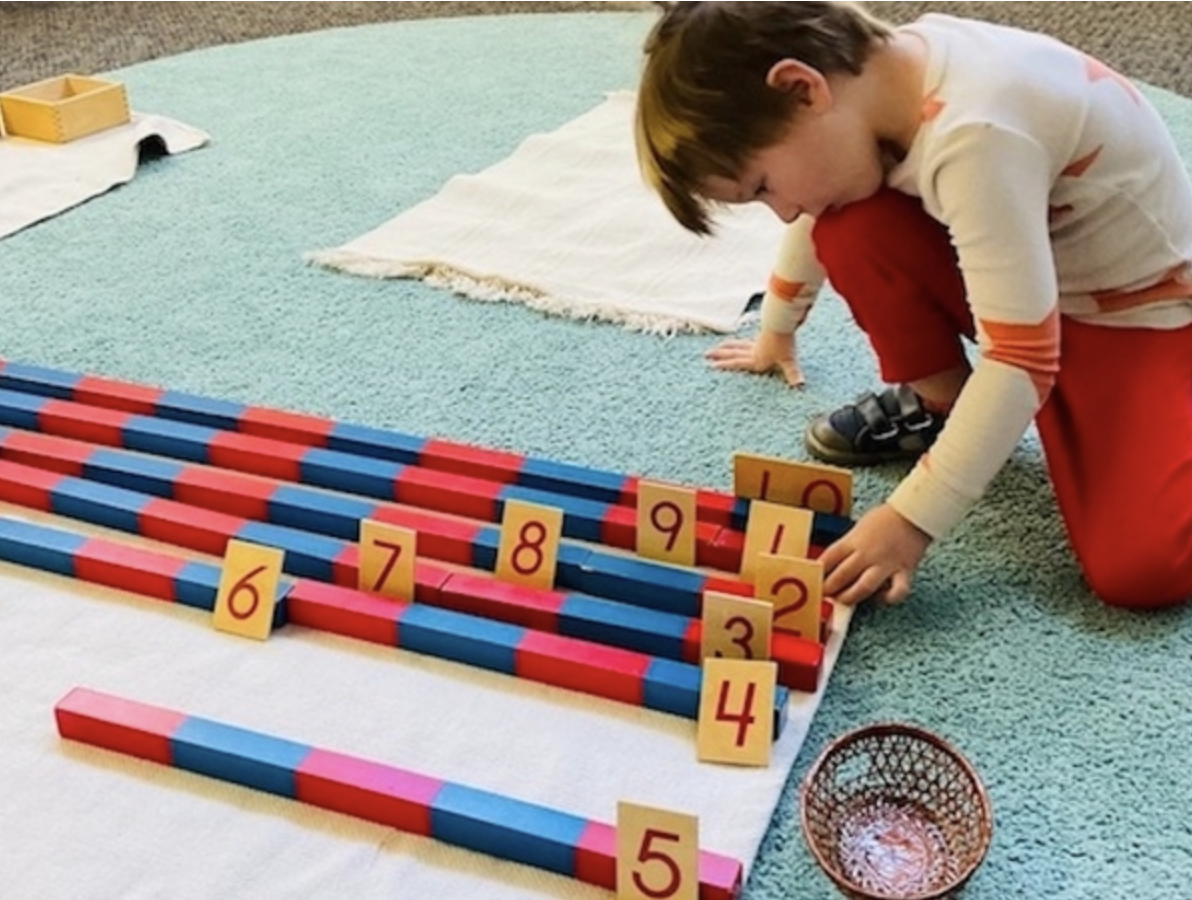“The goal of early childhood education should be to activate the child’s own natural desire to learn.”
– Maria Montessori
About Montessori
“Education is not what the teacher gives. Education is a natural process spontaneously carried out by the human individual…through experiences in the environment.”
- Maria Montessori
-
Dr. Maria Montessori was an Italian physician and educator who developed the Montessori Method—an approach that honors each child’s natural desire to learn. Her philosophy centers on independence, hands-on exploration, and deep respect for the child.
In Montessori education, the Golden Triangle refers to the essential partnership between the child, the prepared adult (guide or parent), and the prepared environment. When these three elements are in harmony, the child’s potential can fully unfold.
-
The Prepared Environment is a thoughtfully designed space that brings together children in the same stage of development, along with materials and activities that meet their developmental needs. It supports independence, concentration, and purposeful work—allowing children to learn at their own pace in a calm, respectful setting.
-
The Child is at the heart of the Montessori philosophy. Seen as naturally curious, capable, and eager to learn, the child is viewed as an active participant in their own development. Given freedom within a thoughtfully prepared environment, children are able to explore, choose, and grow into independent, confident, and joyful human beings.
-
The Prepared Adult has a deep understanding of natural child development and creates a supportive environment in which the child can thrive. They observe with care and offer individualized guidance to meet each child's unique needs and interests.
This thoughtful, respectful presence is what transforms education into a true aid to life.
Your Child's Montessori Journey
↓
Exploration
Children begin by exploring their environment, developing coordination and independence through practical life activities and sensorial experiences.
↓
Discovery
As concentration develops, children discover connections between materials and concepts, building their understanding of language, mathematics, and culture.
↓
Mastery
Through repetition and practice, children master skills and concepts, gaining confidence and developing a lifelong love of learning.
↓
Independence
Children emerge with self-discipline, social awareness, academic readiness, and the confidence to tackle new challenges.

